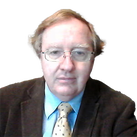Can Iran win an economic war of attrition against Israel?
As the world holds its breath in the face of escalating violence in the Middle East, this conflict could come down to which country is best positioned to deal with sanctions, writes Mark Almond


At first sight, a war of words has replaced the buzz of missiles and drones between Iran and Israel. Spin doctors on both sides have deflated their immediate mutual threats.
But it is too soon to breathe a sigh of relief.
Peace is not breaking out in the Middle East, and not only because of intense violence in Gaza.
All the reasons for tension and conflict between Iran and Israel are still there.
The focus on so-called “kinetic” warfare is distracting us from the economic war that preceded the missile strikes between Iran and Israel this month, and is likely to intensify now.
Ever since 1979, the Islamic Republic has faced US sanctions of varying intensity, made sharper by American suspicions of its nuclear projects. Over the weekend, Donald Trump’s Republicans and Joe Biden’s Democrats in the House agreed on even tighter – potentially military – sanctions on Iran.
Of course, hardships are suffered by ordinary Iranians, unable to access everything from medicines patented in the US to Boeing spare parts for old planes, but the Islamic regime has kept itself afloat and its military-industrial projects funded. It would love to see sanctions dropped – but not at the price of reversing its agenda, which includes aid to Israel’s neighbourly enemies, Hamas and Hezbollah.
By contrast, with Iran’s sanctions-constrained economy, Israel has been a pioneer of globalisation and economic and information tech integration with the wider West, now including Arab powerhouses like the UAE. This is in sharp contrast with the country’s early decades, when Egypt refused Israeli shipping access to the Suez Canal and provoked war in 1967 by blockading access to Israel’s port on the Gulf of Aqaba.
Until last October, Israel seemed as invulnerable to economic warfare as it was to a military onslaught.
Only student groups in elite Western universities seemed enthusiastic for boycotts and disinvestment – and wouldn’t Columbia’s graduates grow up to be investment analysts recommending Israeli tech stocks?
But Israel has an achilles heel.
It is intellectual property rich, but natural resources poor, while Iran squanders its intellectual capital because it has oil and gas to waste on a covert war with Israel.
Israel’s problem today is less disinvestment – though there are straws in the wind in Belgium and Holland – than a good old-fashioned physical blockade. From attacks on Red Sea shipping by Iran’s Houthi allies in Yemen, to the Islamic Revolutionary Guards’ seizure of Israeli-owned shipping in the Persian Gulf, insurance and cargo delivery costs are hiking. Alternative road routes across Jordan to UAE ports are more expensive than sea routes for heavy goods – such as foodstuffs, machinery and vehicles.
None of this is fatal for the Israeli economy, but a modern market economy operates on margins. Adding costs cuts competitiveness.
Europe’s economies are an ailing warning because of the blowback from the EU’s own sanctions on Russian energy and raw materials.
Israeli airpower cannot protect its shipping a thousand miles south from the Houthis, who have already shown that they can defy US and European warships “guaranteeing” security to Western shipping heading up the Red Sea to the Suez Canal.
Iran’s use of high-seas piracy and the endemic threat of violence not only in Israel’s skies but on the ground, too – not least in the underreported West Bank, with its many pilgrimage sites – is cutting Israel’s income from tourism dramatically.
Because of the Gaza campaign, as well as security demands in the West Bank and on the Lebanese and Syrian borders, huge numbers of workers have been called up into uniform in the IDF.
In the past, Israel won decisive victories quickly. Its first prime minister, David Ben-Gurion, warned that it could not survive prolonged wars of attrition.
Hamas has proved a tough as well as a brutal nut to crack. Won’t war with Hezbollah drag on longer and disrupt Israel’s economy more? Worse still, Israel has lost two key regional partners whose support was valuable in its first decades of independence.
Until 1979, and its peace with Egypt, Israel had only two regional friends: Iran and Turkey – not by chance the non-Arab societies in the Middle East. The Shah’s Iran sold oil to Israel, and secular Nato member, Turkey, was hostile to the pro-Palestinian and pro-Soviet regimes in neighbouring Syria and Iraq. Some Muslim Arab states may be Israel’s friends (even allies like Jordan), while Iran is its mortal foe and Turkey’s President Erdogan greets Hamas’s Haniyeh with a kiss.
Maybe Iran’s ability to survive decades of would-be economic strangulation is a sign that being more economically primitive (as well as repressive) makes a state less vulnerable to economic warfare.
Israeli society has been most cohesive in the face of external threats – until now. Benjamin Netanyahu’s Marmite effect on public opinion is re-emerging as the war drags on. Add economic and social costs to the human toll, and a new uncertainty haunts Israel.
Join our commenting forum
Join thought-provoking conversations, follow other Independent readers and see their replies
Comments
Bookmark popover
Removed from bookmarks